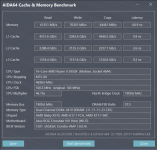Caporegime
Ryzen 4000 CPUs to work in B450 motherboards:
https://hexus.net/tech/news/mainboard/141661-xmg-amd-ryzen-4000-vermeer-cpus-will-compatible-b450/
https://hexus.net/tech/news/mainboard/141661-xmg-amd-ryzen-4000-vermeer-cpus-will-compatible-b450/



